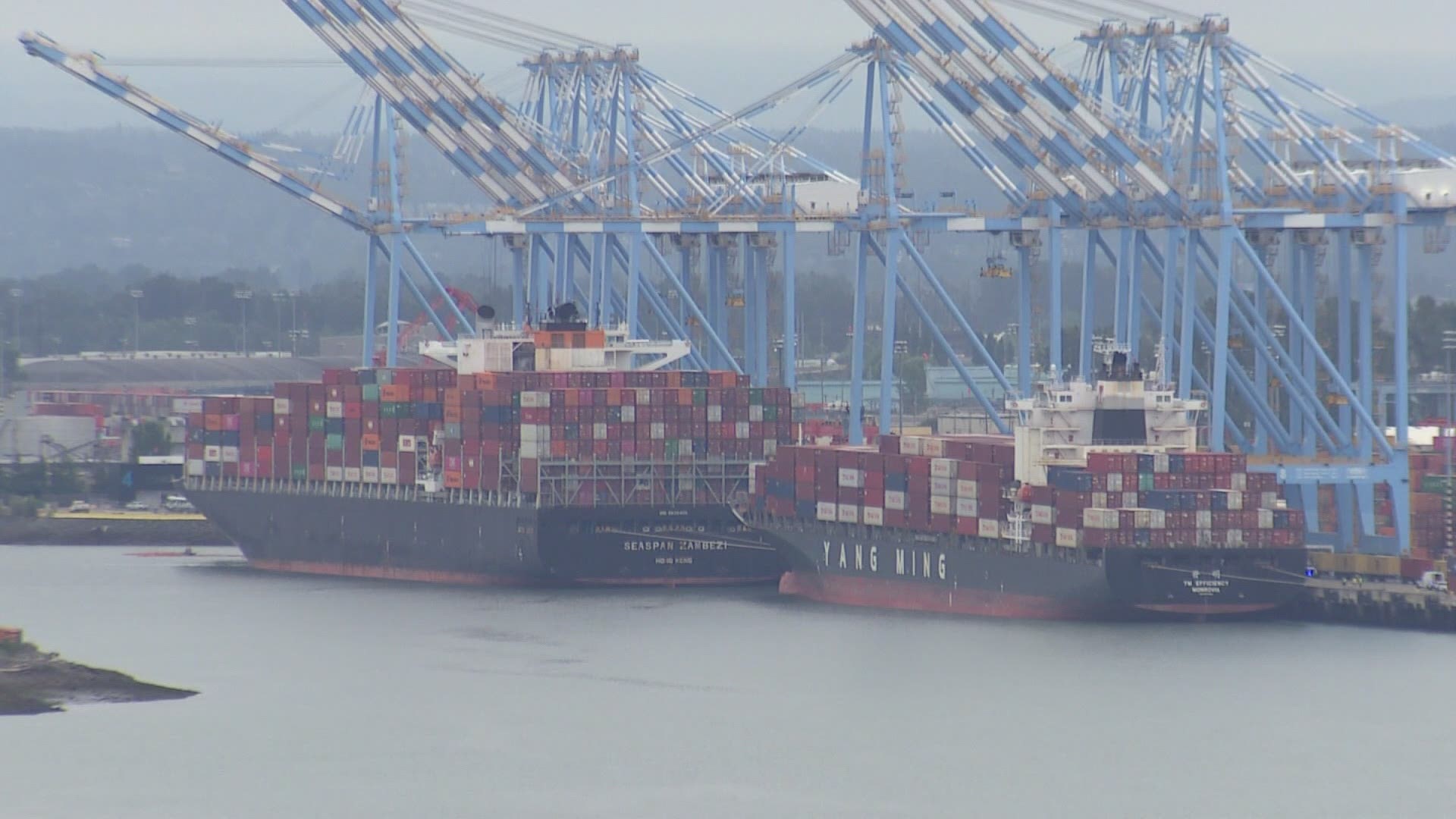SEATTLE — A group of seaports in the Pacific Northwest pledged earlier this year to bring their net emissions to zero by 2050 through an “ambitious” and “comprehensive” strategy to combat climate change.
The public is now being asked for feedback on draft implementation plans and to help address the needs of the ports.
"I think the primary purpose why we want ongoing community engagement throughout this process is because we're taking these actions down to the local level,” said Alex Adams, senior environmental programs manager at the Port of Seattle. “What do communities want the port to do? What should we prioritize? Where should we invest? What are the things that matter most?”
The first Northwest Ports Clean Air Strategy plan was adopted in 2008 with the goal of keeping the economic playing field between the ports even while also making the environment a priority.
Together, the port of Vancouver, B.C. and the Northwest Seaport Alliance (NWSA), which includes Seattle and Tacoma ports, have already accomplished lofty goals like reducing diesel particulate matter by 80% and greenhouse gas emissions by 15%.
But experts at the Port of Seattle said more work is needed. When port officials turned to the community and stakeholders for help in the past, it led to positive change.
The public can submit feedback on the Ports of Seattle, Tacoma, and NWSA draft implementation plans via email, by taking an online survey, or by joining a 5:30 p.m. community webinar on July 15. The online survey is open through August 15.
The original clean air strategy plan included language to phase out seaport-related emissions as early as possible this century. But when the plan was taken to the public, it faced criticism for not having a date and sense of urgency. The ports then added the more ambitious goal of reducing emissions by 2050.
"There's a tremendous amount of, you know, wisdom and creativity and experience and expertise and ideas in the community. And so, this survey is a way to tap into that,” said Steve Nicholas, senior air quality and sustainable practices manager at the NWSA. “We certainly don't have all the answers. And so, this outreach, you know, helps us make these implementation plans better.”

